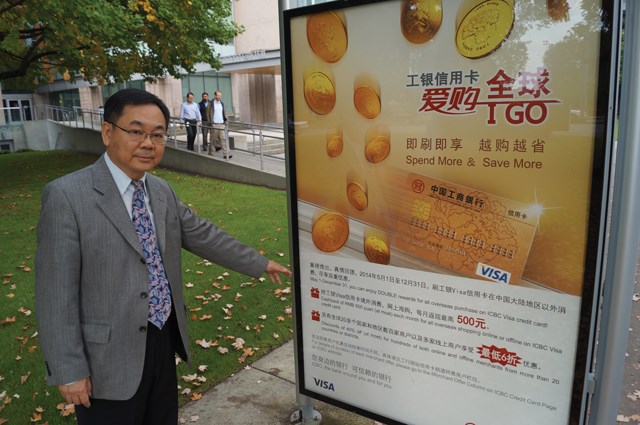Business owners in Richmond will continue to be able to erect signs in any language of their choice.
On Monday Richmond city councillors unanimously agreed that a bylaw requiring English on city-sanctioned business signs, is not required.
Councillors followed the recommendation of Cecilia Achiam, director of administration and compliance, that the city need not use a stick approach to businesses with non-English signs.
Rather, a carrot — in the form of advancing “community harmony” through consultation — has been chosen as the best approach to solving the divisive issue.
The decision disappointed community activist Kerry Starchuk, who noted the city has attempted public forums on “inter-cultural harmony” as far back as 1996.
“Twenty years later and it hasn’t changed,” said Starchuk, noting a new bylaw amendment (approved concurrently by council) that will “de-clutter” all secondary signage (regardless of language) in the city will continue to be complaint driven.
Notably, while the amended bylaw aims to reduce signage, here are no changes to non-city sanctioned signs, such as real estate signs and bus shelter ads.
According to Achiam’s report, since December 1,550 visual inspections and 877 door-to-door meetings have taken place by city officials, who found 13 signs solely in a language “other than English.”
Achiam relied on the opinion of UBC socio-economic geographer Dr. Dan Hiebert, who presented at a community workshop on signs. He concluded, in a city-sanctioned study, “linguistic landscapes cannot accurately be used as a platform for measuring degrees of social harmony.”
Online public input to the city during the process found the vast majority of residents (only 16 per cent neutral or positive) felt non-English signs were negative for the community in some form.
A language specific bylaw that could stand a challenge under the Charter of Rights and Freedoms would need to justify proven “social welfare objectives are at stake…in the absence of regulation,” according to legal advice given to council last October by Valkyrie Law Group.
Once a supporter of a language bylaw, Coun. Carol Day said she was pleased with the progress being made through consultation, which should continue before implementing a mandatory bylaw.
Coun. Chak Au said a language bylaw in Richmond Hill has never been challenged legally.
“I don’t think we have to follow their example when we can do it in a better way,” said Au.
Hiebert noted Richmond Hill used a multi-faceted approach.
Coun. Bill McNulty praised the report and called the sign issue “just that.”
Coun. Harold Steves acknowledged the issue runs larger than just signs. He said non-English signs hurt the community and drew other parallels to how the city is disconnected, noting the prevalence of “ghost homes” owned by foreign, non-residents.
He noted when he grew up in Richmond, the Japanese community never put up Japanese signs, but rather chose to learn English.



